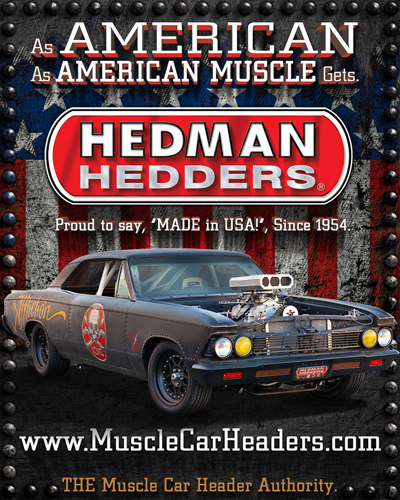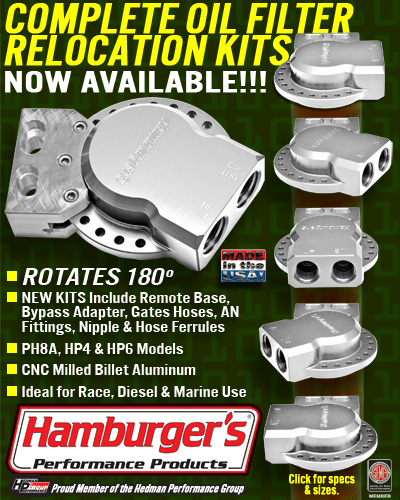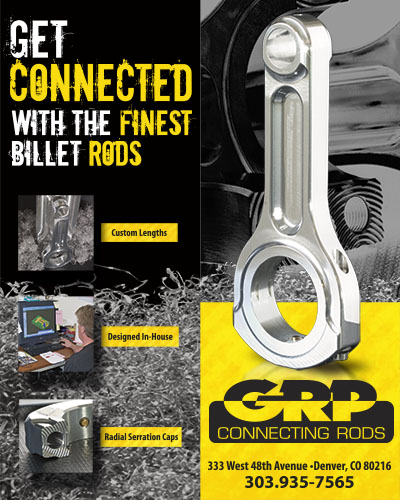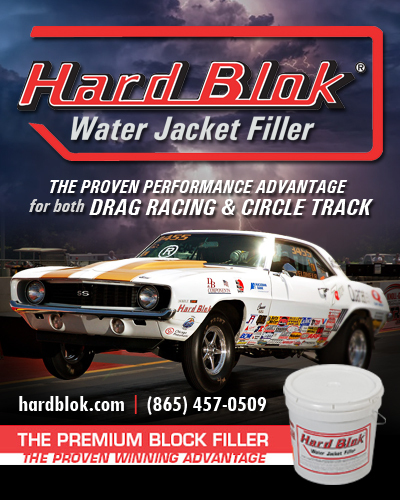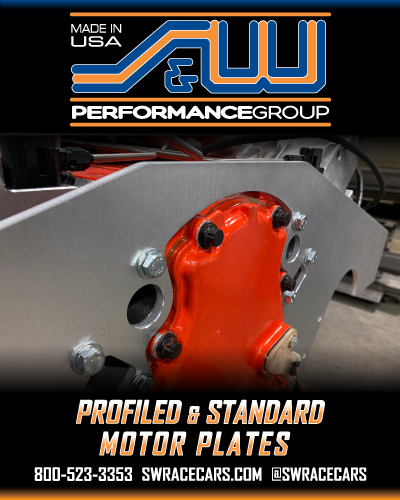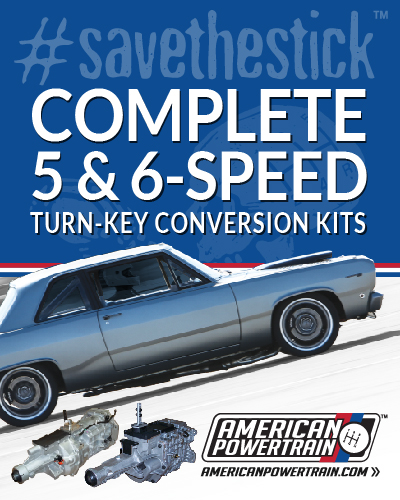ENCORE: DARRELL RUSSELL WAS DESTINED TO BE A CHAMPION
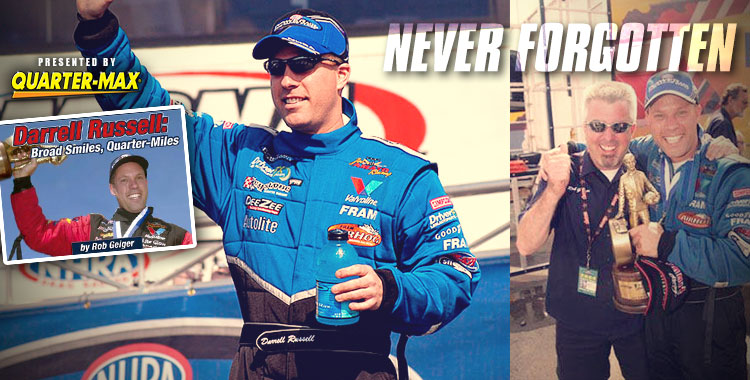 EDITOR'S NOTE -
EDITOR'S NOTE -
On Friday at 2 PM, EST in the Media Center at the Performance Racing Industry trade show, CompetitionPlus TV will unveil its latest edition of Legends: The Series, featuring the late Darrell Russell. In the spirit of ensuring his memory remains alive in drag racing, we felt it appropriate to provide an encore presentation of an article we wrote in 2017.
Russell lost his life while drag racing in June 2004, during the NHRA Sears Craftsman Nationals outside of St. Louis.
Originally Published 5-11-17
 On a day where the drag racing conditions were as hot as one could muster, the reality of drag racing's inherent danger couldn't have faced a colder reality.
On a day where the drag racing conditions were as hot as one could muster, the reality of drag racing's inherent danger couldn't have faced a colder reality.
Drag racing was robbed of an up and coming star, the kind of star which shined brightly on and off the track.
There are those in the drag racing community who refuse to allow Darrell Russell's memory be extinguished.
In the second round of eliminations at the 2004 NHRA Gateway Nationals, Darrell Russell's dragster exploded a slick, taking out the wing in a race alongside Scott Kalitta. The errant dragster broke in half and subsequently made contact with the Gateway Motorsports Park retaining wall and came to a stop.
Later in the evening of June 24, 2004, Russell, 35, was declared dead. He was struck by debris which entered the cockpit of the Joe Amato-owned dragster.
Longtime journalist and publicist Rob Geiger, largely considered one of Russell's closest friends, believes when drag racing lost Russell it also lost one of drag racing's truly good guys.
"It lost a really genuine guy," Geiger said. "If there’s one thing when I reflect on Darrell, it’s how real the guy was. He was real in dealing with the fans, and was that way with his fellow racers. He was a kind soul.
"Darrell was nice to the person at the rental car counter, or when you’re checking into a hotel, places where they didn’t know he was a professional race car driver. He was just another person."
In other words, if Russell had a bad day or an enemy -- detecting such negative vibes was impossible.
"Never heard him get too upset about anything," Geiger added. "Either at racing or away from racing, he was just a happy kid. That’s why he always had that big smile on his face."
Geiger admits the only person Russell ever was at odds with was himself.
"I know he got frustrated with himself at times if he had a bad light, or felt like he lost a race that maybe he could have won," Geiger recalled. "He’d beat up on himself for a few minutes. Normally he’d sit up in his lounge, and within ten minutes he’d gather himself, and he’d be right back out there at the ropes again signing autographs and smiling like ‘Hey we’ll get them next time’ kind of deal."
Russell was about the only person who could find fault in his driving. The 2001 NHRA Rookie of the Year, Russell earned his job as a driver for the legendary Amato, a multi-time NHRA Top Fuel champion, on his talent alone and not how much money he brought to the operation.
Russell honed his craft in the Top Alcohol Dragster division, racing his way to six victories in eleven final round appearances.
Russell immediately found success on the big stage of NHRA Top Fuel by becoming only the third driver to win in their debut. He reached the final round seven times in his debut season.
Russell made the transition seamless for Amato, who, after winning five NHRA Top Fuel championships and 53 national event victories, was forced out of the cockpit with a serious injury to his eyes.
 "I think early on Joe made the decision he wanted to get a driver from the Alcohol ranks and somebody that was an up and coming driver, and Darrell fit this description," Geiger said.
"I think early on Joe made the decision he wanted to get a driver from the Alcohol ranks and somebody that was an up and coming driver, and Darrell fit this description," Geiger said.
Russell proved to be wise beyond his experience, and appreciative of the big picture which went along with the dream gig.
"Darrell was always very appreciative too with the crew guys," Geiger said. "He always made a point of going around to each of the crew guys and thanking them. If he felt like he’d done something wrong, he’d be in there saying, ‘Man, guys I’m sorry. I blew it today. This one’s on me."
"It didn’t happen much, but that’s just the kind of guy he was. He wanted to make sure everyone around him was happy, not just happy himself."
The same spirit which drove Russell to encourage others was contagious to the point it inspired Geiger to undergo a two-and-a-half year project writing a book on Russell's life. This year marks a decade since the book was released.
Russell and Geiger spent a large measure of their time on the road together, before and after the events.
Darrell Russell: Broad Smiles, Quarter-Miles, enabled Geiger to not only memorialize his best friend but also ensure the memories of a shining star extinguished too early will be forever remembered.
"It was definitely cathartic for me to do it because I was able to channel a lot of the feelings I had into my writing, and into doing that book," Geiger said. "As it went along, and as I spent time interviewing his Mom, Dad and his brother, and his wife, and people that were close to him, I realized that this was going to be a way to document the life of a really, really great guy that died far too young."
And the toughest chapter to write was Chapter 9, the point where he recalled the day he watched Russell die.
Geiger said there were no premonitions on this particular morning. This event was a night race with eliminations scheduled to begin at 4 PM. Because the track temperature had climbed to nearly 150-degrees, NHRA officials had elected to bring a water truck on the track a little after noon, in an attempt to make it cooler. Sunday was going to be extraordinarily hot, even after the sun went down.
"You do get those feelings sometimes, and it’s just superstition," Geiger recalled. "There were none of those feelings; it was really positive. We had just won the race previous to that in Columbus. We had a brand new car, which was a big thing for Amato to spend the money on getting a brand new chassis. It worked so well in Columbus; we beat Tony Schumacher in the final round, which was a real big feat. We came to St. Louis, and we were number one qualifier, and it was like, ‘Man, this is going to be the start of a huge run for us."
Geiger would often ride to the end of the track where he'd meet Russell as he exited the car, and often provide a ride on his scooter back to the pits.
Russell left the starting line slightly ahead of Kalitta, but it was at the 1,000-foot mark where Kalitta pulled ahead and crossed the finish line first. Almost simultaneously, Russell's dragster blew a slick.
The car didn't strike the retaining wall, as Geiger recalled, and he fully expected Russell to exit the car.

"The car kind of grinded to a stop as it went along the wall, so I jumped on my scooter and rode down there," Geiger said. "Really the only thought I had was, ‘Well heck, we just banged up the brand new chassis. I hope it’s not damaged because even if we can’t finish the race today, it was a great car. We don’t want to mess it up.'"
When Geiger rolled up on the adjacent return road, the look on the face of NHRA's Emergency Services crew member Dan Brickey told the story.
"I just rode away, and let them do their jobs," Geiger said. "I knew this was bad."
Russell was airlifted to St. Louis University Medical Center, where was pronounced dead shortly after arrival. Geiger said doctors confirmed Russell was likely instantly killed when shrapnel went through the opening in the back of the rollcage and struck him.
On June 25, 2004, new regulations were set in motion to ensure drivers were safer in the face of this kind of tragedy. Immediately, Goodyear made changes to its fuel tire, and NHRA mandated new shrouds were to fill the openings in the rear of the dragster rollcages.
Geiger believes those shrouds were Russell's way of saving countless lives in the future.
"It’s interesting because every time I see those, it makes me think of Darrell," Geiger said. "You look at a car, and you see those shrouds, and you’re like, well that’s a little reminder of Darrell. It’s kind of maybe like Darrell’s way of putting his protection over the drivers that are out there in this day in age; he’s got their back, so to speak."
Geiger said Russell knew very well the risks drag racing presented.
"We talked about it, not a lot," Geiger said. "You know how racers are. They don’t like to talk about crashing. They kind of think they’re invincible in many ways. You know, he had a saying, ‘Bad things can happen at 300 miles per hour."
Geiger admits the first few races following Russell's death were almost unbearable, traveling to the races and likewise filing his race reports for NHRA.com. An after hours moment with 16-time champion John Force helped to put the situation in perspective.
" I was in Seattle, and I ran into John Force, and he said, ‘Come on, you and me are going out tonight."
Geiger said it was Force's advice that hit home like none other.
"He said, ‘Let me tell you something from a racer’s point of view. If they had had a driver’s meeting that morning, and there were Top Fuel, Pro Stock, and Funny Car drivers, 48 guys sitting in there looking at each other in that meeting."
"If the race promoter had gone up on stage and said, ‘Listen, we’ve got some advance information. We know one of you guys is going to die today, but we don’t know which one. We do know for sure somebody’s going to die today."
"Force said everyone in that room would’ve raced. That’s just how drivers are wired. You never think it’s going to be you. I don’t know, for some reason that was comforting to me because it kind of put some clarity into the mind of racer. They never do think that it’s going to be them. They know the risk is there, but they just don’t think it’s going to be them."
Geiger also knows a team of wild horses couldn't have kept Russell from racing that day. It was just the way he was wired.
 This DNA, Geiger quickly points out, is what would have made Russell a world champion in due time. In fact, before he signed with Amato, Geiger revealed Force made a run to hire him.
This DNA, Geiger quickly points out, is what would have made Russell a world champion in due time. In fact, before he signed with Amato, Geiger revealed Force made a run to hire him.
"I never, even to this day, I’ve never met a fan that doesn’t have something nice to say about Darrell," Geiger said. "There’s always somebody out there that can snipe at somebody, but I never heard that with Darrell, and I think the fans really enjoyed it."
In fact, about a month ago, Geiger said he received a letter from someone who had recently read the book
"They were like, ‘Man, I’m so glad I read this book because it really lets me know everything I thought about Darrell was actually true," Geiger conveyed.
Russell, even 13 years after his passing left a lasting impression.
"Just watching him taking a minute to say hello to people that you could easily just walk right by, gets your attention and leaves a lasting impression," Geiger said. "He was quick to say hello and thank you to those people, and give them a big smile. You know, I feel like I’m emulating Darrell when I do that. It’s a good thing. It’s a good thing to be kind to people, and that’s the main thing I remember of Darrell. He was just a really sweet kid that had a big, big heart."
And honestly, he left an even bigger impression on those he met.
BUY DARRELL RUSSELL - BROAD SMILES, QUARTER-MILES


























